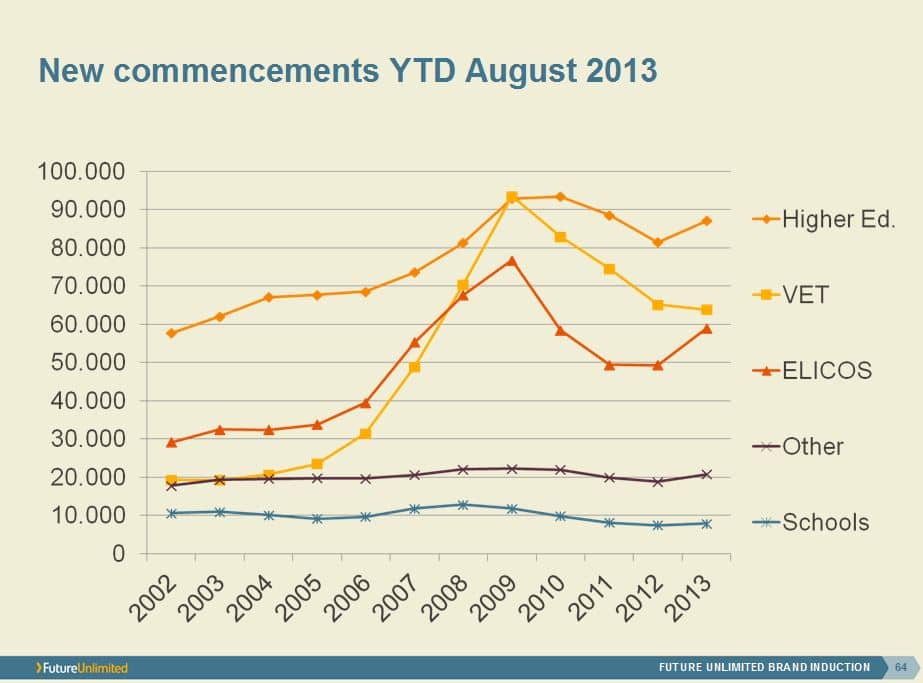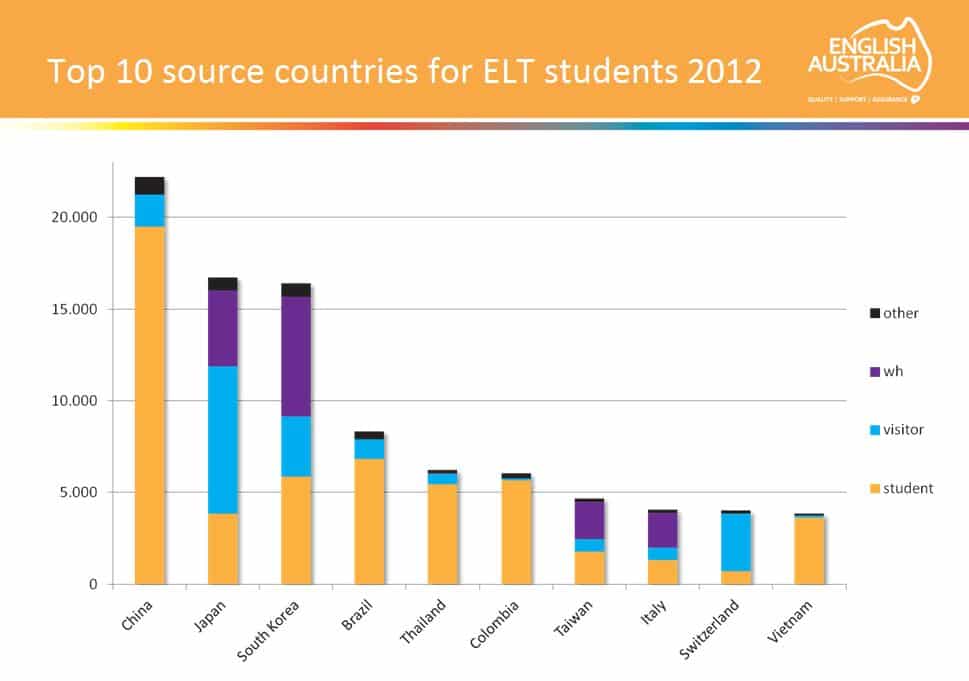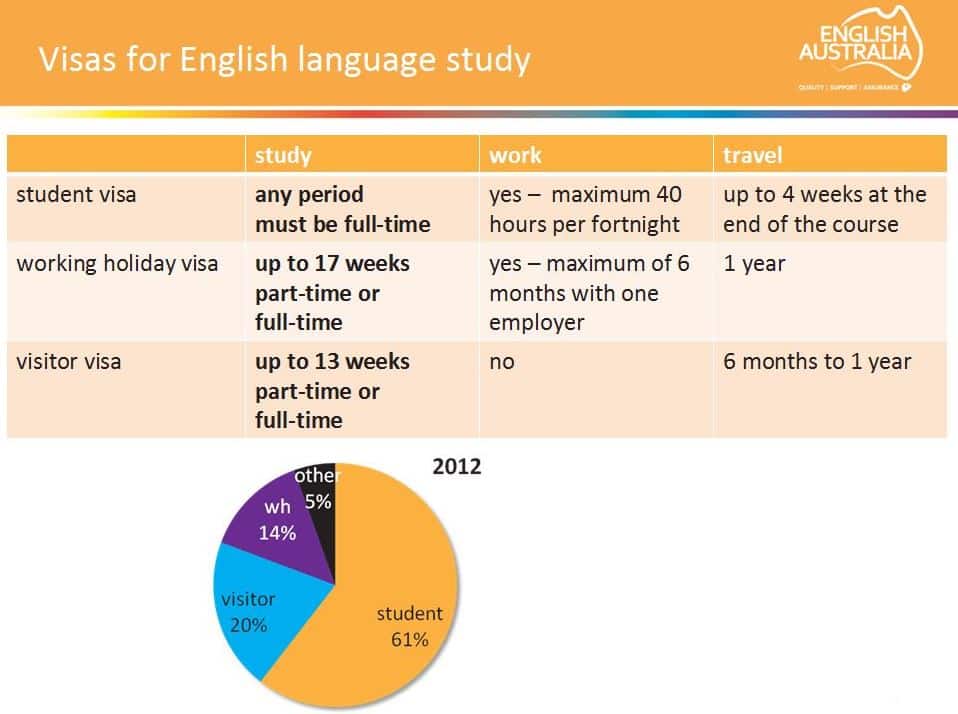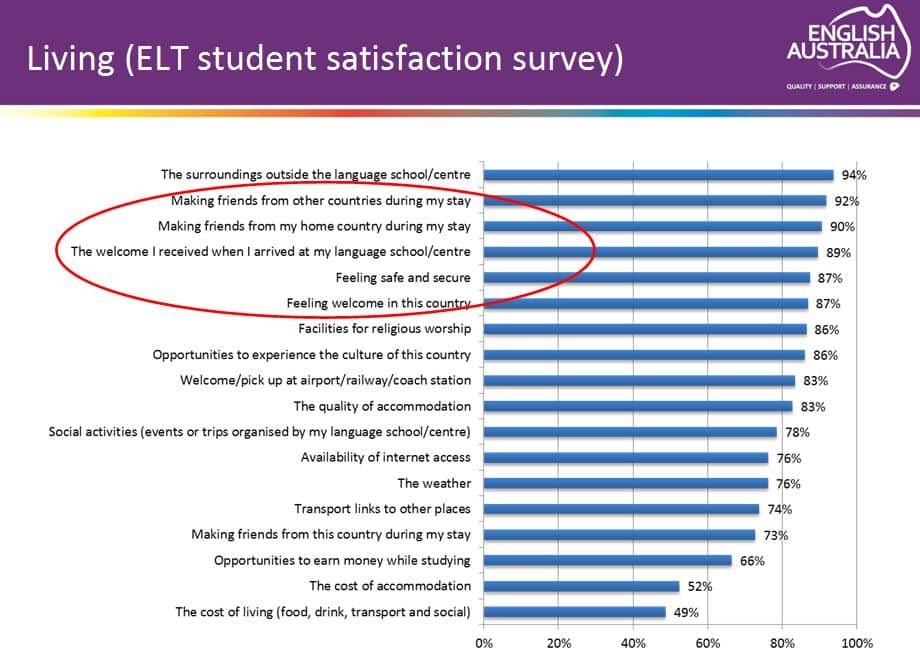Key ingredients to ensuring sustainable growth in Australia’s language sector
Today's exclusive video interview is with Sue Blundell, CEO of English Australia (EA). EA is the national peak body for the English language sector of international education in Australia, representing over 100 of the leading English language colleges. Together, they deliver courses to approximately 80% of all English language students in Australia. Providers in Australia are naturally keen to protect and promote both the quality of education and the student support offered, as well as the overall experience international students have when they come to Australia. And as "the voice" of the English language sector in Australia, EA is the go-to resource for "quality, professional support and great data collection." Listen to our interview with Ms Blundell, as she talks about how the industry can sustain its recent growth, where it's coming from, the role of effective, unified top-down marketing strategies, and what opportunities are ahead now that the country has a new government in place. Lately there have been signs of a recovery for the international education industry in Australia, and the English language training (ELICOS) sector is shining, with commencements up +19.6% at YTD August 2013 (see graph below). Ms Blundell enthuses,
"After four years of falling enrolments, it is fantastic to see that we are bouncing back and on the road to recovery."
She explains that the growth is spread evenly across the sector - in university and private providers, stand alone as well as pathway providers; however, the mood on the ground in Australia is one of "cautious optimism."





"I look forward to the new government as being very positive for international education... We can look forward to a year where this government will be examining how much they can pull back and let business do business... it's an opportunity for us to see a decline in the kind of regulation that constrains an industry, that constrains innovation, that constrains opportunity."
Additional resources which readers might find useful include:
- English Australia: Understanding the industry
- Study in Australia
- Brand Australia – Future Unlimited and the global "Win your Future Unlimited" competition
- CRICOS – registered institutions & courses
- International student statistics
- Student visa statistics
- Student visas
- Student visas – what’s new
- Tourist visas
- Working Holiday Visas
















